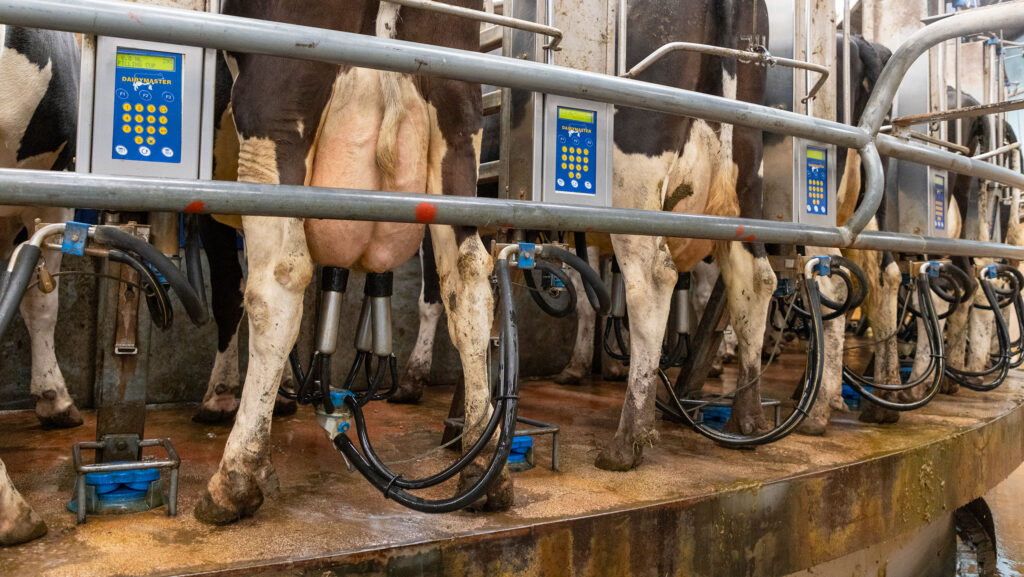Crediton Dairy struggles with excess milk supply
 © GNP
© GNP Milk processor Crediton Dairy has called on its suppliers to reduce the amount of residual litres they are sending as it strives to deal with excessive milk volumes.
The Devon-based processor is currently seeing record milk volumes of more than 500,000 litres a day coming into the factory.
It has asked suppliers to amend dairy herd diets, bring culling forward or sell their cows to ease the amount of residual litres.
See also: Dairy farmers dump milk amid Muller factory chaos
In a letter to their suppliers, managing director Tim Smiddy, said: “There is no sign of this slowing any time soon and it is causing a real challenge to the dairy, as well as milk collection.”
Citing a combination of relatively low feed costs, high-quality silage, favourable grazing conditions, and a highly competitive milk price, Mr Smiddy said these factors have contributed to record milk volumes nationwide.
In some areas, farmers are not having milk collected due to a lack of factory capacity.
Milk is only having cream taken off and the skim is going into AD plants – the spot milk price is as low as 9p/litre.
“Every UK factory is running flat out, along with the milk collection fleet with very little capacity anywhere, which explains why spot milk price is so low as there isn’t really anyone that can take it even if they wanted to” said Mr Smiddy.
As a result, the Crediton Dairy residual price for May could be as low as 17p/litre and projected to continue at a similar level into June, he added.
Mr Smiddy said that while the company wants to maintain its current milk price, this will become difficult if high residual volumes continue.
Milk glut ‘has been building’ – analyst
Commenting on the current situation across Great Britain, dairy analyst Chris Walkland said: “This has been building for a while, and we’ve seen record volumes over the past few months.”
Mr Walkland explained that while milk volume in Britain isn’t so bad, Northern Ireland has seen volumes increase by 8-10%, and milk volumes have exceeded processing capacity.
“We’ve been worried about this for several years but managed the situation with luck, bad weather and poor milk-price-to-feed-price ratio,” he said.
“On what is a good milk price, farmers have been churning out volume and it’s a surprise it hasn’t affected the price, expect for Yew Tree suppliers.”
